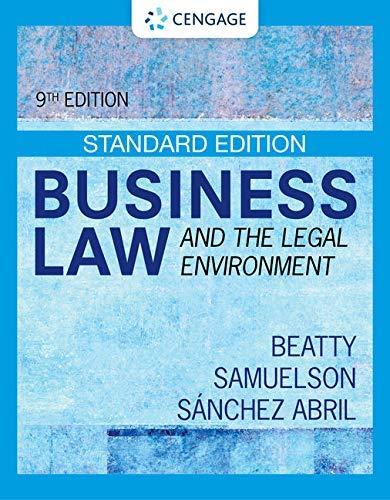Question
This is an excerpt from one of my legal scholarly publications. Google is known as the most powerful and popular internet search engine in 2017.
This is an excerpt from one of my legal scholarly publications. "Google is known as the most powerful and popular internet search engine in 2017. It has 40,000 search queries every second and 3.5 billion searches per day worldwide on average (Google Search Statistics, n. d.). To give consumers a genuine choice, Google is expected to crawl websites on the internet comprehensively and deeply. Selected websites are indexed and ranked to place the most relevant first. This is vital because the top spot on the first page has 32.5 percent of traffic share, following with second spot 17.6 percent and third spot 11.4 percent (Lee, 2013). Hence, the businesses battle to be placed in the premiere spot of the first Google search page as 95% of Google clicks occur on the first page for those utilizing desktops.
The top generic results garnished 35% of the clicks and were stronger on mobile devices (Google hit with record EU fine over Shopping service, 2017). On the second page, however, search traffic drops by 95 percent (Lee, 2013). The most ranked rivals for Google appears on at the fourth page, making them almost impossible to be viewed by consumers seeking competition. As such, clicks on rival sites have decreased by 90% (Google hit with record EU fine over Shopping service, 2017). This is NOT an example of Antitrust violation
True
False
Step by Step Solution
There are 3 Steps involved in it
Step: 1

Get Instant Access to Expert-Tailored Solutions
See step-by-step solutions with expert insights and AI powered tools for academic success
Step: 2

Step: 3

Ace Your Homework with AI
Get the answers you need in no time with our AI-driven, step-by-step assistance
Get Started


